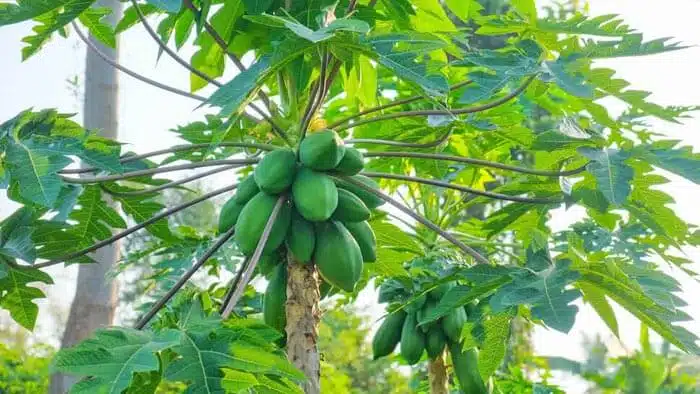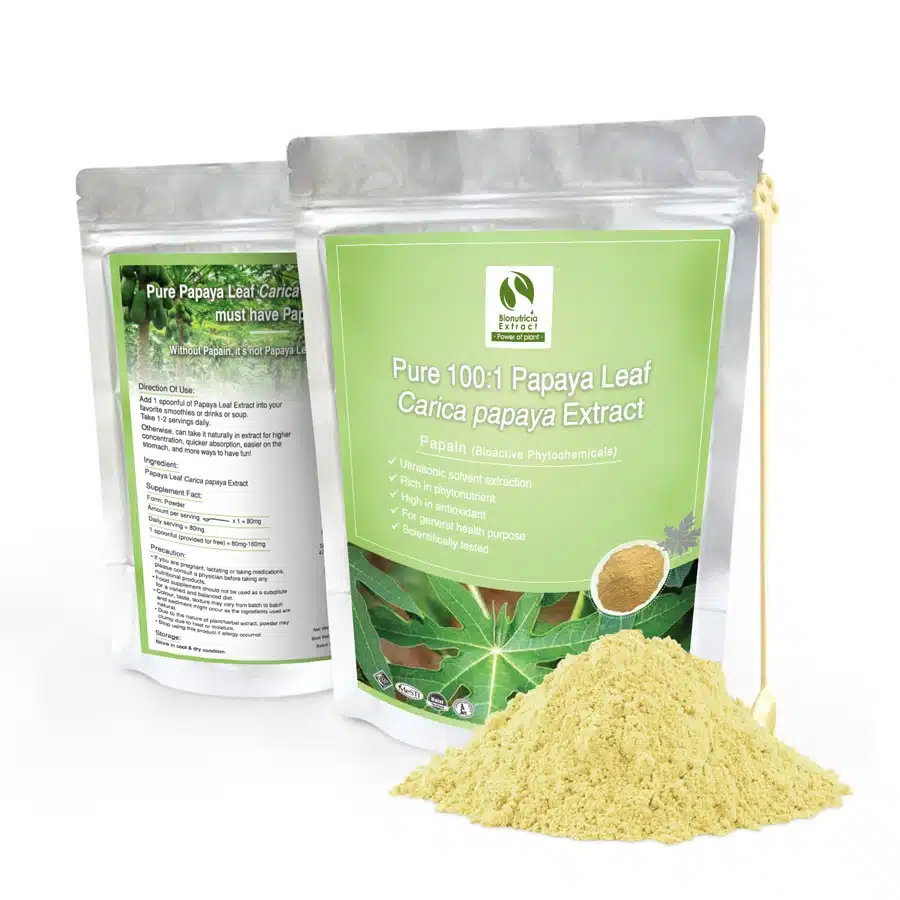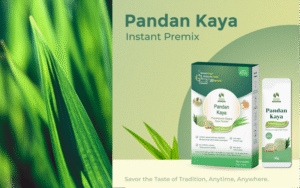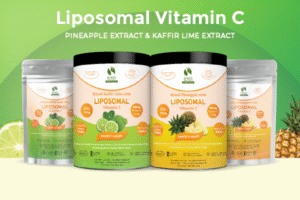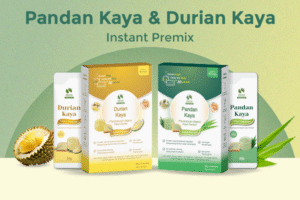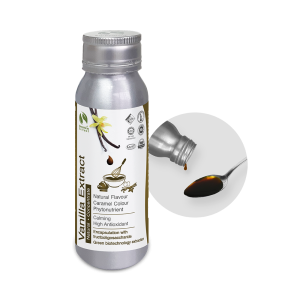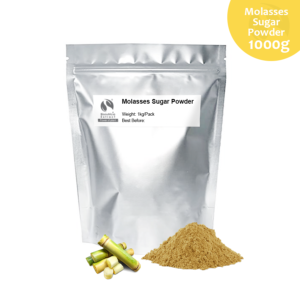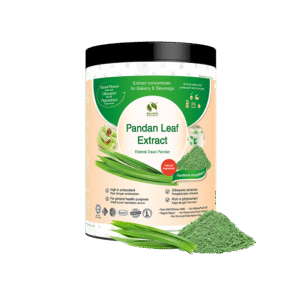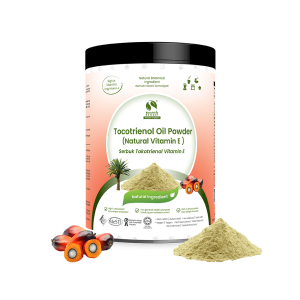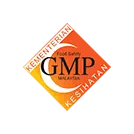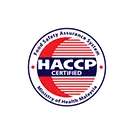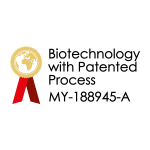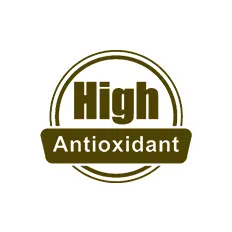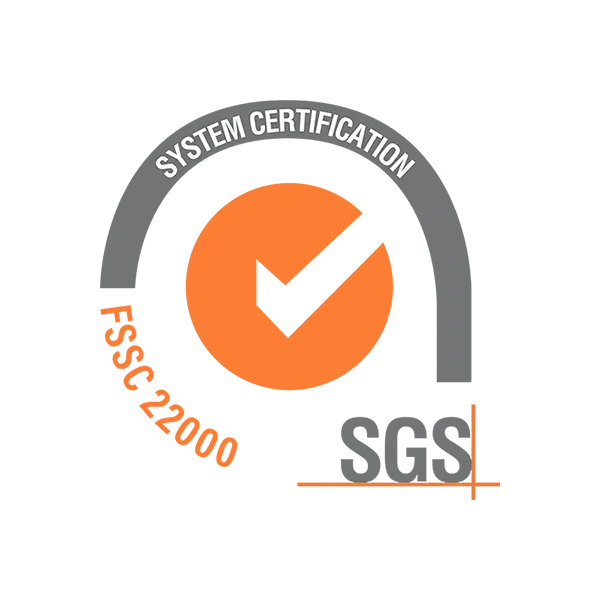Papaya (Carica papaya, Caricaceae), native to Central America, is a single stemmed, soft wood with hollow trunk perennial tree, growing from 6-32 feet in height, with large palmate leaves appearing at the trunk’s apex.1 The tree has been naturalized in many tropical climates. Papaya trees contain lactifers, special cells which secrete latex, which is found throughout most of the tree’s tissues. This latex is a source of four cysteine endopeptidases (enzymes that breaks peptide bonds) – papain, chymopapain, glycyl endopeptidase, and caricain. All parts of the tree, fruit (fresh and dried), leaves, dried leaves, stems, seeds, and roots, have been used in traditional and alternative medicine practices. The leaves contain carpaine, an alkaloid, and carposide, a gludoside. They have been used to treat a number of conditions, including diabetes, syphilis, inflammation, pyrexia, and fevers, including dengue fever, and as a dressing for septic wounds.
Papaya leaf has been shown to have antimicrobial effects and increase platelet count in animal studies,2 and the latter has been demonstrated in patients with Dengue fever.3 In a pediatric study published at the beginning of 2019, researchers sought to determine if a papaya leaf extract (Carapill Syrup; MicroLabs, Ltd.; Bengalura, India) could reduce thrombocytopenia in patients with dengue fever.4 The final evaluation included 285 children and found that the papaya leaf extract significantly increased platelet count compared to the control group (P<0.05) when taken for five days. Papaya leaf extract has also been shown to affect gingival bleeding.5 Gencix (Esprit d’Ethique; Orvault, France), a tooth powder containing papaya leaf extract and sold in Europe, was evaluated for its anti-inflammatory effects on interdental bleeding in healthy participants. After four weeks, the intervention with and without mouthwash (Listerine Cool Mint; Johnson & Johnson Healthcare Products; Maidenhead, United Kingdom) was found to be as effective as a sodium lauryl sulfate-free dentifrice that contained enzymes (Zendium Classic; Sara Lee; Amersfoort, The Netherlands) also with and without mouthwash.
Lori Glenn
HerbClip™ Managing Editor
References
1Dharmarathna SL, Wickramasinghe S, Waduge RN, Rajapakse RP, Kularatne SA. Does Carica papaya leaf-extract increase the platelet count? An experimental study in a murine model. Asian Pac J Trop Biomed. September 2013;3(9):720-724. doi: 10.1016/S2221-1691(13)60145-8.
2Papaya leaf. Memorial Sloan Kettering Cancer Center website. https://www.mskcc.org/cancer-care/integrative-medicine/herbs/papaya-leaf#references-13. Accessed November 20, 2019.
3Kasture PN, Nagabhushan KH, Kumar A. A multi-centric, double-blind, placebo-controlled, randomized, prospective study to evaluate the efficacy and safety of Carica papaya leaf extract, as empirical therapy for thrombocytopenia associated with dengue fever. J Assoc Physicians India. June 2016;64(6):15-20.
4Srikanth BK, Reddy L, Biradar S, Shamanna M, Mariguddi DD, Krishnakumar M. An open-label, randomized prospective study to evaluate the efficacy and safety of Carica papaya leaf extract for thrombocytopenia associated with dengue fever in pediatric subjects. Pediatric Health Med Ther. January 2019;10:5-11. doi: 10.2147/PHMT.S176712. eCollection 2019.
5Saliasi I, Llodra JC, Bravo M, et al. Effect of a toothpaste/mouthwash containing Carica papaya leaf extract on interdental gingival bleeding: a randomized controlled trial. Int J Environ Res Public Health. November 2018;15(12):E2660. doi: 10.3390/ijerph15122660.

